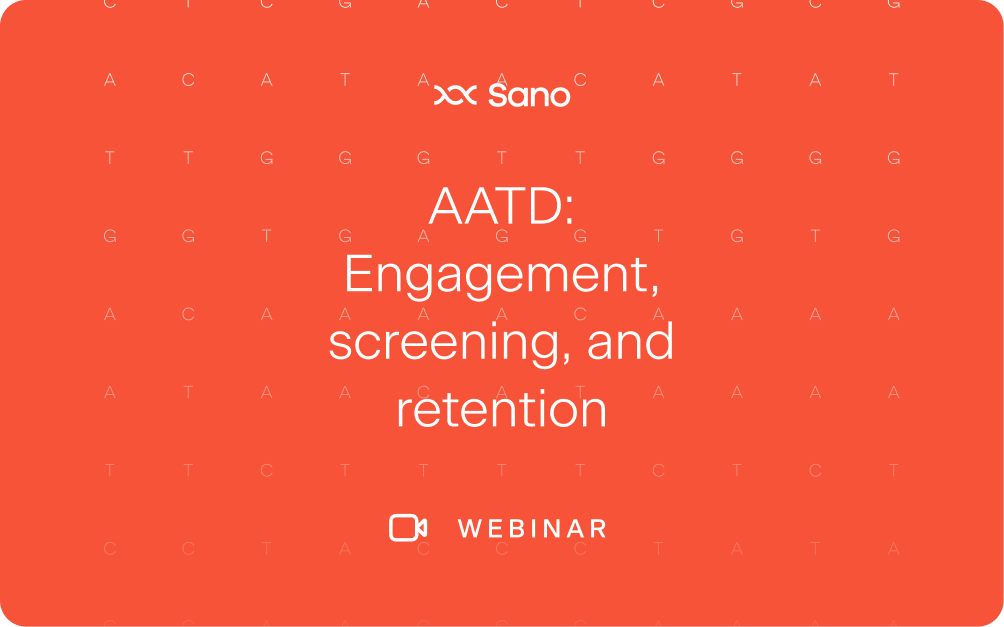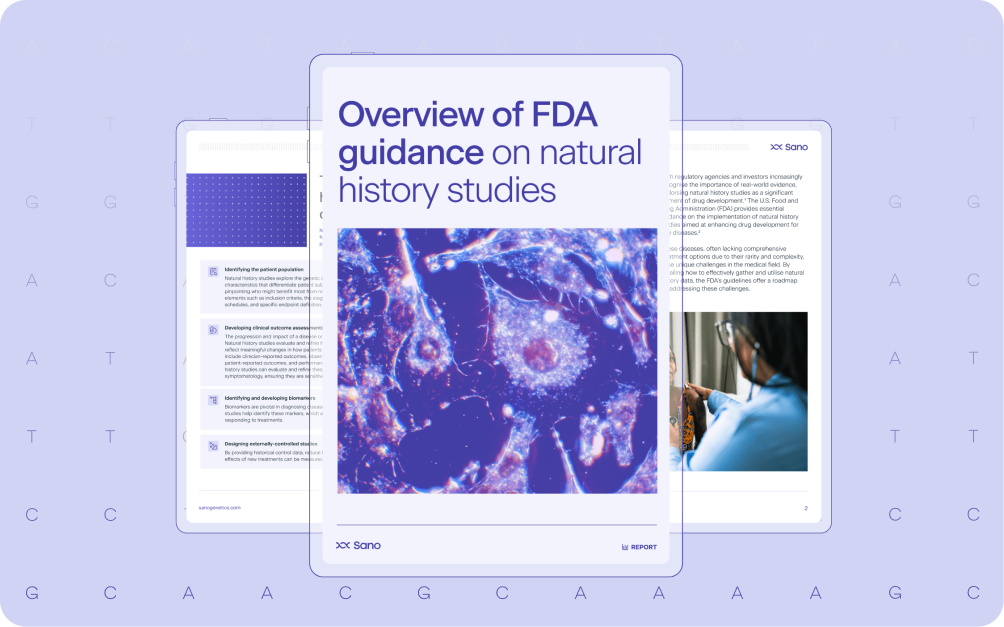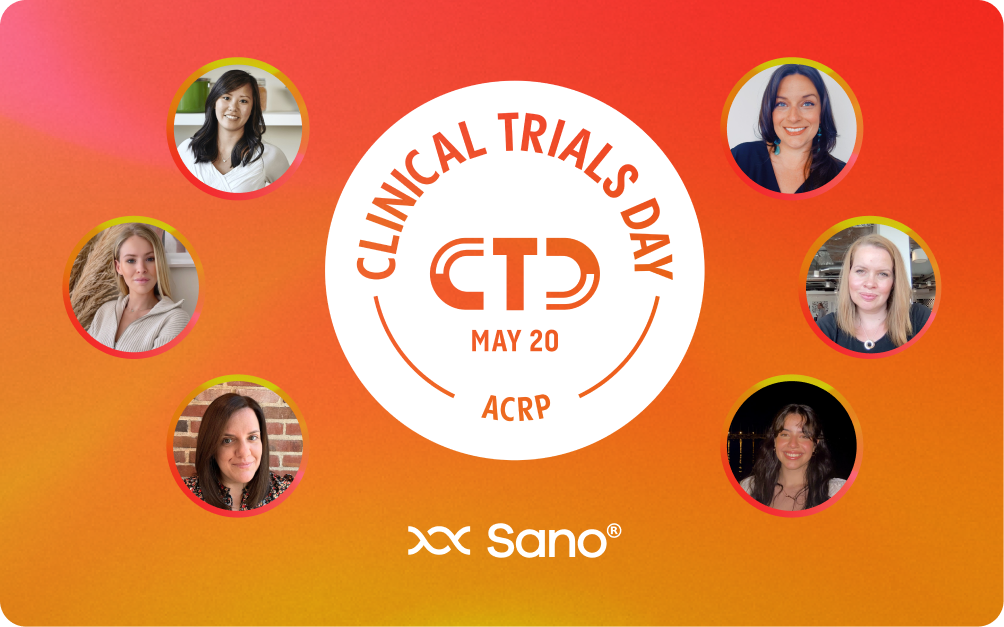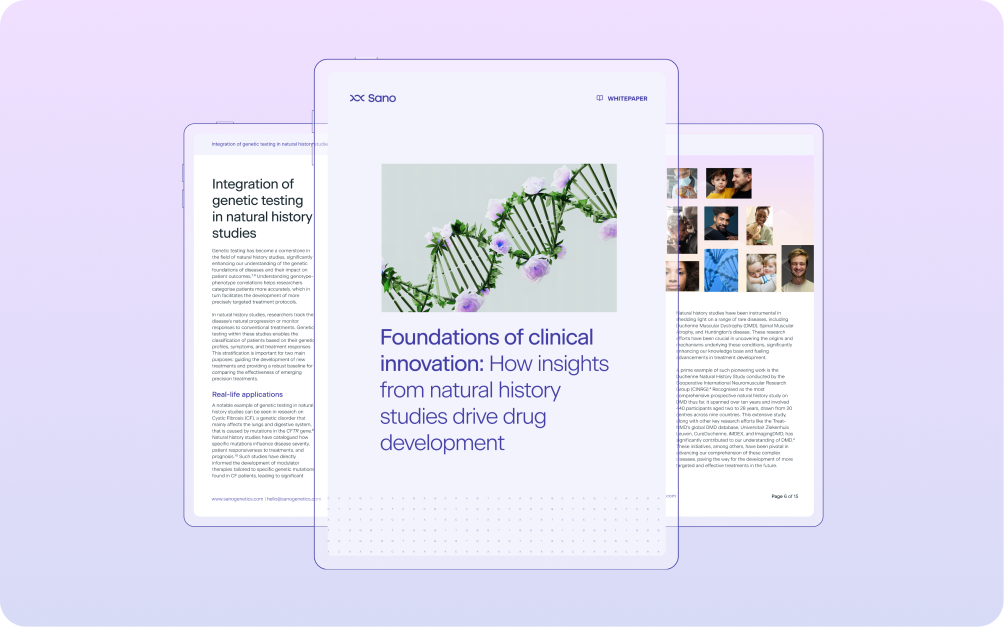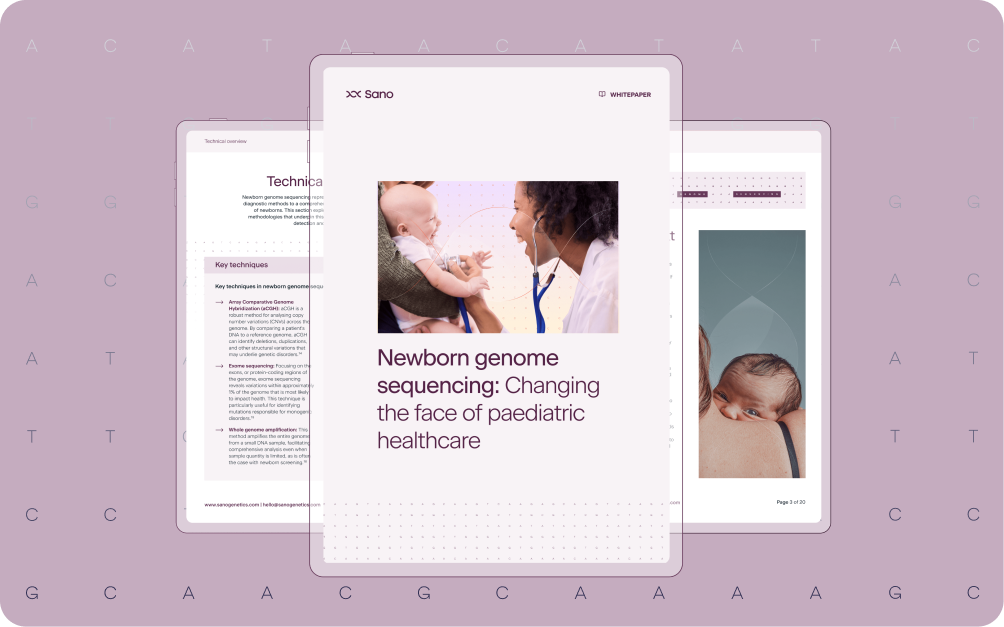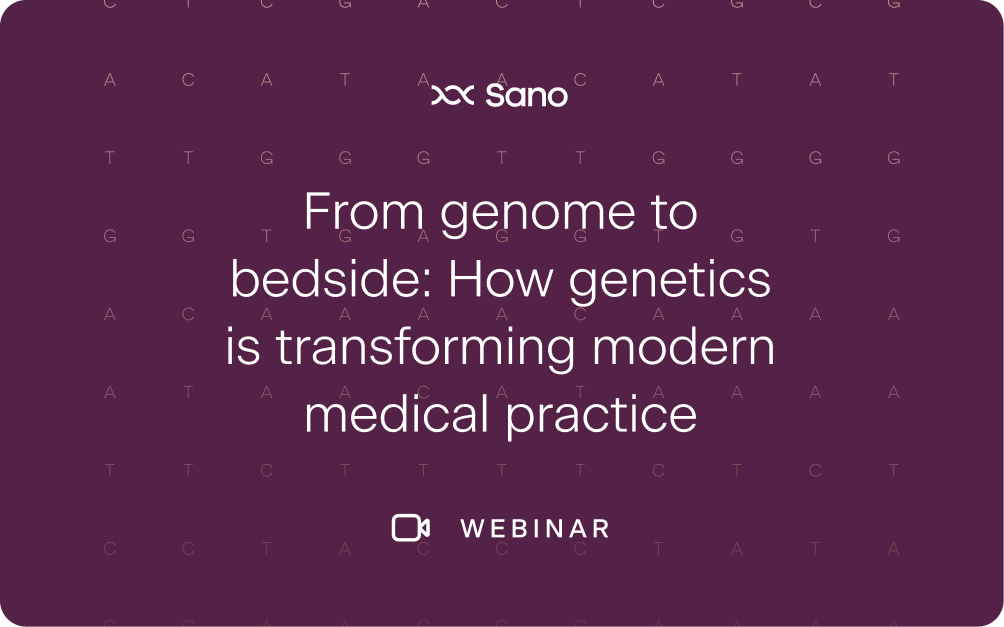Clinical research blog
Explore our blog for insights into the big questions in precision medicine and clinical research.
In this webinar, "Alpha-1 Antitrypsin Deficiency: Engagement, screening, and retention," Sano Senior Project Manager, Hayley Holt, shares a case study on our work with an industry-leading sponsor to deliver genetically-qualified volunteers for a precision medicine clinical trial focused on Alpha-1 Antitrypsin Deficiency (AATD). The webinar explores the methodologies used and describes the success of the project.
The Genetics Podcast recap: Championing diversity and accessibility in genomics with Mavis Machirori
In the latest episode of the Genetics Podcast, Sano CEO Patrick Short had the pleasure of speaking with Mavis Machirori, a senior researcher at the Ada Lovelace Institute and co-founder of Genetics Engage.
Developing treatments for rare diseases involves unique obstacles due to the rarity and complexity of these conditions. To address these challenges, the FDA offers guidance on conducting natural history studies. These studies are essential for comprehending disease progression, identifying patient subgroups, discovering biomarkers, and refining clinical outcome assessments – all of which enhance the effectiveness and design of clinical trials.
In honour of Clinical Trials Day, we're sharing some reflections from our team at Sano about why we do what we do. Clinical Trials Day marks the anniversary of James Lind's first controlled clinical trial in 1747, a key moment in medical history. For us at Sano, it’s a chance to celebrate the work we’re passionate about and the incredible people who make it possible. These quotes reflect some of our personal journeys and the reasons why we’re dedicated to advancing precision medicine. From living with genetic conditions to striving for groundbreaking discoveries, our team’s stories show the heart and commitment behind our mission to transform healthcare.
Natural history studies are essential for advancing our understanding of diseases, especially rare conditions with limited research. These studies monitor disease progression in their natural, untreated forms, providing invaluable insights that inform the development of effective treatments and precision medicine.
Natural history studies are vital for understanding disease progression, particularly in rare diseases. They provide a baseline to evaluate the effectiveness of new treatments. Our latest whitepaper explores the benefits and challenges associated with these studies.
This webinar is the second in a series on the complex legal environment of precision medicine, featuring Mina Frost, General Counsel for Sano Genetics. In this episode, Mina focuses on issues like market access, reimbursement, and intellectual property. Mina provides a clear breakdown of these topics, helping us understand how laws affect the delivery of innovative medical treatments.
Last week, our team had the opportunity to attend the World Orphan Drug Congress in Boston. The event was a dynamic gathering, where leaders from biopharma, regulatory agencies, and patient advocacy groups came together to discuss the challenges and advancements in treating rare diseases.
Newborn genome sequencing represents a major shift in paediatric healthcare, offering the potential for early detection of genetic disorders and setting the stage for personalised treatment strategies from the very beginning of life.
In the informative webinar hosted by Dr. Patrick Short, Co-founder and CEO of Sano Genetics, guest Dr. Andrea Gropman explored the profound impact of genetics and genomics on modern medical practice. The discussion provided valuable insights into the journey of translating genetic discoveries from the laboratory to the bedside, particularly focusing on neurogenetics and metabolic disorders.

